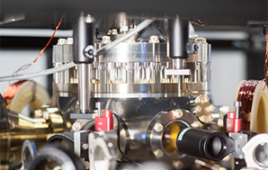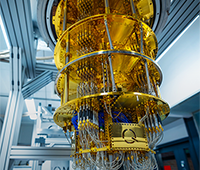![]() Bothell, WA — Silicon Mechanics, a provider of servers, storage and high-performance computing solutions, announced the recipients of its fifth annual Research Cluster Grant (RCG); the University of New Orleans and the University of California, Merced. Each grant awardee will receive a high-performance computing (HPC) cluster with the latest high-performance processing and GPU technologies, valued at over $100,000 for use in demonstrated research purposes going forward. This is the second year that Silicon Mechanics has made the award to two institutions.
Bothell, WA — Silicon Mechanics, a provider of servers, storage and high-performance computing solutions, announced the recipients of its fifth annual Research Cluster Grant (RCG); the University of New Orleans and the University of California, Merced. Each grant awardee will receive a high-performance computing (HPC) cluster with the latest high-performance processing and GPU technologies, valued at over $100,000 for use in demonstrated research purposes going forward. This is the second year that Silicon Mechanics has made the award to two institutions.
Since 2012, when Silicon Mechanics initiated the RCG, the program has extended its reach considerably, providing over $500,000 worth of much needed technology advancements to universities and institutions where access to important research funding to acquire high-performance computing technology has become more difficult in recent years.
“Being part of a program which provides cluster technology to help positively impact research efforts is why we started this five years ago. Providing a solution to these universities where access to high-performance computing was either limited, outdated or was not previously available is ultimately what the RCG is all about,” said Art Mann, Silicon Mechanics’ Sr. Director, Life Sciences Practice. “Knowing we are helping to advance collaboration between university departments and researchers, and being able to look down the road at the advancements and findings these institutions are targeting is very exciting.”
“We are happy to continue to support this program and provide the universities with leading EDR 100Gb/s InfiniBand interconnect technology,” said Scot Schultz, director of HPC and technical computing at Mellanox Technologies. “The Research Cluster Grant supports HPC education with technologies that are state-of-the-art, and also provides a spring-board for enhancing skills that are in high demand in the industry.”
At the University of New Orleans, the HPC cluster will be used to build on the strengths of the medicinal chemistry, cyber security, advanced materials design, information assurance and computational biology programs featured at the university. The HPC equipment will improve research in big data analytical methods for cyber security and digital forensic purposes, the development of GPU-accelerated tools for computational chemistry, cyber-security and bioinformatics, and university resources using dockers and containers to solve scientific problems.
“The cluster will be a boon to our research,” said Dhruva Chakravorty, assistant professor of chemistry at UNO, the lead investigator on the grant proposal. “We will be able to process data at rates that previously would not have been possible. It will also enable us to analyze data up to 20 times faster. We expect this cluster to help us remain competitive for federal and state grants in the years to come.”
At the University of California, Merced, the HPC cluster will provide the university a variety of scientific research and training opportunities, including the capacity to train a diverse population of undergraduate and graduate students on a full set of computational skills needed to be competitive in the job market as independent researchers.
“This cluster will help propel our science and engineering research forward in exciting new directions. An in-house cluster will also help train our graduate students to strategically use high-performance computing resources such as the parallel processing capabilities of GPUs,” said Christine Isborn, assistant professor in chemistry and chemical biology, who wrote the grant proposal. “I also foresee using the cluster in my computational chemistry undergraduate course.”
Previous RCG awardees include both Dordt College and City College of New York (CCNY) in 2015, Wayne State University in 2014, Tufts University in 2013 and Saint Louis University in 2012. Silicon Mechanics’ partners that have donated product to this year’s grant include
- Intel
- NVIDIA
- Mellanox
- Supermicro
- Micron
- Broadcom Limited
- Seagate
- Western Digital
- HGST
- Bright Computing



